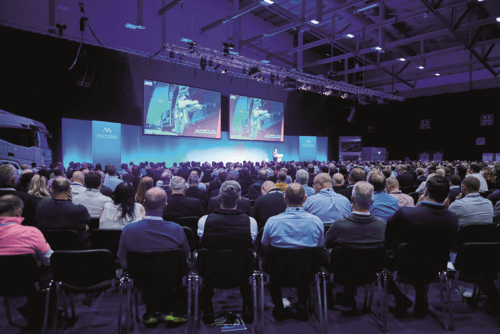Over 60% of the transport industry professionals at the recent Microlise Transport Conference said better route planning and optimisation is more likely to improve efficiency and reduce costs than other management solutions such as driver performance, safety and anti-fuel theft, says telematics and technology solutions provider Microlise.
During the open debate, over 1,000 representatives from the transport and logistics industry were asked which aspects of fleet management have the biggest impact on cost reduction. The overwhelming majority said that they were in no doubt that a modern approach to vehicle route planning saves time, reduces road miles, cuts harmful emissions and takes out significant operational cost.
“The pandemic signaled the need for a step-change in the way many businesses organise their supply chains and general logistics models” says Microlise Product Director, Stephen Watson. “Manual planning is rapidly becoming a thing of the past, because the sheer human effort involved in marrying up jobs with resources and organising them into workable routes is a tremendous cost burden and riddled with potential inefficiencies.”
Conversely, says Microlise, an automated transport planning and optimisation solution will provide fleet managers with the capacity to dramatically reduce the time taken to create a plan whilst considerably improving load monitoring and maximising asset utilisation. “The right planning and optimisation system,” added Stephen, “allows transport managers to take their list of jobs, allocate them to available resources and continually plot them into routes until the most efficient routes are fed into the plan. This ensures optimum use of assets while allowing managers to set meaningful KPIs.”


